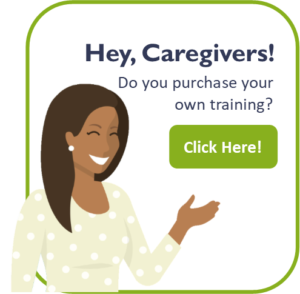Scary as it may sound to anyone who knows me, I was doing some math earlier (GASP!). According to my calculations, those of us who work full time spend around 2,080 hours a year at work—not including overtime. In the healthcare field, very little of that time is spent standing still. I know that I spend most of my shift running, juggling, problem solving and answering questions while racing to my next task. My experience as a CNA in a long term care facility is that if you aren’t exhausted by the end of your shift, you’re doing something wrong.

Because of the hectic pace, I used to find that “mental multitasking” was the best way to adapt and get things done effectively. While one part of my mind was focused on the task at hand, another part was going over the list of what came next. Doing this ensured that everything was accomplished in the quickest possible time frame. Everyone’s basic needs were met efficiently and beds were made before breakfast. This method took time to learn and required a lot of practice to apply with proficiency. It worked well! So why, after a year or so, did I decide to scrap the entire multitasking method?
I realized that my focus was on accomplishing tasks for my residents rather than on the residents themselves. By working the way I had been, I was only half in the moment. Yes, I performed my duties and helped people with their activities of daily living. Yes, I noticed their moods and physical well-being–but was I fully engaged? Was I REALLY listening to them? The answer was a resounding “no.” Not the way I should have been.
This was brought home to me one morning as I was helping one of my residents. While getting cleaned up before breakfast, she started crying. Alarmed, I sat on the edge of her bed and encouraged her to open up about what was upsetting her. She spoke of fears and loss and anger and regret as I held her hand. And as I listened, it occurred to me that THIS was the most important thing that I could do—be fully present for each interaction with the people for whom I care. If this means that some beds do not get made until after breakfast, then so be it. I owe them that. One way or another, everything will be done in the eight hours. It’s more important to prioritize than it is to multi-task.
That was some time ago, but in that moment of clarity, I realized that all of us in nursing have a choice. Our shifts can be filled with minutes or moments. MINUTES slip away one by one while we are busy thinking of other things but MOMENTS leave an impact. Minutes drag on or are wished away. They are wasted. Moments teach us and reach us. They remind us of our humanity. I’ve shared one of mine with you. When I reflect on my days now, I can find many moments and I know how they have shaped me. 2,080 hours a year. That is a lot of time. How we choose to spend it is up to us.
Until next time,

Here’s more about Corey Anne Rotella, in her own words:
“At first, I worked in the housekeeping department at an assisted living facility until I could afford to take the state test. Then I moved up to CNA. I also have my Medication Aid certification, but my heart is on the floor, where I can interact, observe and care for my residents. My priority is taking time with my residents so that they know they are valued as human beings. At the end of the day, don’t we all need to know that?
What I love most about my job as a CNA is that every single lesson I learn at work can be applied in all areas of my life. A lifelong chronicler, I began to fuse my two passions and write about my work experiences, my perceptions and the issues that we all face in the healthcare system–patients and workers alike.
What impresses me most about the nurses behind In The Know is that they shine a light on the problems that exist in the healthcare field and offer practical, well thought out solutions that are effective and embrace individual accountability. I am both extremely grateful and incredibly excited to contribute to their mission in any way that I can.”


